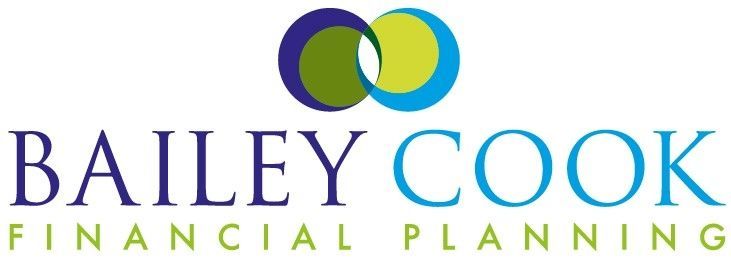News

The Scary Budget
Wednesday 6th November 2024
Introduction
In our pre-Budget bulletin last month we looked at the rumoured changes and in particular the possible pension changes. Our biggest fear unfortunately came to pass, with pension funds being made subject to Inheritance Tax (IHT) with effect from 6th April 2027. Press coverage has continued apace following the actual Budget last Wednesday, with much debate and analysis, which you will have no doubt seen. For this bulletin we shall focus on IHT and Pensions.
Such pension changes are hugely complex and hence why there is the two year implementation timescale and indeed HMRC have issued a consultation paper that runs until 22nd January 2025. That there will be change and pension funds be subject to IHT sadly seems of little doubt. Invested personal pension funds make up 42% of total private wealth in the UK, higher then property, so this is a great potential revenue source for the new Government. However, there will be much detail to come following the consultation with potential alterations to be made and hence a watching brief rather than immediate action may be prudent, especially with the two year breathing space.
Advice cannot be a blanket approach and will be tailored to each individual's circumstances but we will try and breakdown some of the general complexities in this bulletin.
Currently pensions mainly sit outside an individual's estate for IHT purposes. This allows them to pass their pension on to future generations without being subject to the 40% IHT level. Many have commented that pensions will therefore no longer be part of an estate planning strategy, and whilst in general this is true, we do not fully agree and indeed is part of an overall Financial Planning strategy.
Age 75 and Inheritance Tax
Of course the key remit of a pension fund is to provide for someone and their spouse/civil partner for their retired lives. After taking the 25% tax free lump sum any pension drawn is subject to income tax. If death occurs before age 75 the remaining pension fund can currently be paid free of any tax. After age 75 then any payment from the fund is taxed as income on the recipient by adding it to their current income to see what rate of tax they pay on the amount drawn. This is why being able to retain any inherited pension fund is important so the recipient can draw down as required to minimise the tax, rather than receive it as a lump sum.
The age of 75 is arbitrary and links to old rules (pre-1995 and the introduction of Income Drawdown) that meant by the latest age of 75 a pension fund had to be used to buy an annuity. According to the Office for National Statistics (ONS) for those aged under 75, the all-cause mortality rate was 363 per 100,000 population, which is good news that we live longer and a relatively small number passing away before age 75. It therefore is pointless changing this age differential.
Assets passing to a spouse/civil partner are free of IHT and will be the same with a pension fund with the new proposed rules. The pension fund passing to a non-spouse/civil partner will be subject to a 40% IHT deduction paid by the pension fund directly to HMRC. Death pre-age 75 will not be subject to income tax so the same as now. However, death from age 75 will also then have income tax deducted. Taking into account the 40% IHT paid first if the recipient is a 20% income tax payer the overall tax rate is 52% i.e. for a £10,000 fund it is reduced to £6,000 after the 40% IHT and then taxed at 20% so reducing it further to £4,800. If a 40% tax payer the overall rate is 64% and if a 45% tax payer becomes 67%. The media have focussed on the highest rate of 67%.
You could argue if you have enjoyed retirement and spent what you wished, that your descendants getting some of the fund is a bonus, but it will grate with most people that the fund suffers the double tax whammy. The public hatred of IHT is because it is a tax on assets that you have built from funds saved after paying other taxes and so “tax on taxed money”. This is now the same for pension funds but, ironically, the double taxation is now IHT first then income tax. This will also grate with many people, especially as many more will now be dragged into the IHT net.
As a reminder IHT of 40% is payable on the value of your estate that is in excess of the Nil Rate Band threshold, which is currently £325,000 per individual. There is also a main Residence Nil Rate Band of £175,000 per individual and can only be claimed if your main residence is left to children or other direct descendants. On the first death assets passing to a spouse/civil partner are exempt and they inherit the deceased’s Nil Rate Bands, hence the IHT often being referred to as payable on the second person to die on assets above £1 million.
Pension funds will, from April 2027, no longer be ignored in these calculations and we expect a lot more estates will therefore be paying IHT.
A further complication is that we also expect the pension fund to now count towards the £2 million of assets, above which you start to lose the Residence Nil Rate Band and so is fully lost at £2.7 million. Further tax of £140,000 by losing all of the Residence Nil Rate Band therefore looms and in the overall planning need to be conscious where pension funds now breach the £2 million of asset value as well as the £1 million.
What will be the key planning considerations under the new rules?
- When to draw the tax free lump sum? Remember it is now limited to a maximum of £268,275*, so we suggest will be drawn once this has been reached or age 75 at the latest. A partial withdrawal strategy may be appropriate.
- What level of income to draw as tax efficiently as possible? Maximising the 20% tax band on drawing income may make sense.
- If under age 75 and married/civil partner then, subject to 2 above, little change, although revist the nomination form completed.
- If single or the last survivor, accelerate the amount you withdraw, regardless of age, but especially over age 75 because of the double taxation.
- At age 75 to review and consider buying an annuity.
What to do with the excess funds drawn
- Spend more and enjoy it as everything you buy is in the sale with 40% off due to the IHT saving
- Gift the excess away meaning gifts falling out of your estate after 7 years and therefore not subject to IHT.
- Maximise the annual exemptions in making gifts.
- If you wish to retain control consider gifting into a Trust.
- Pension funds can continue to be drawn drawn or used to buy an annuity produce income. An immediate relief against IHT is to use the normal expenditure out of income exemption rather than wait the 7 years by gifting the excess income now being drawn.
Normal expenditure out of income
- Gifts must form part of normal expenditure and as part of a habitual pattern of gifting, so around at least three to four years.
- Gifts must be made out of income and not capital, but can include dividends and regular pension withdrawals or ISA income.
- Donor must be left with enough income to maintain their usual standard of living.
- These do not have to be made to the same recipient every year.
Are pensions funds still viable?
Whist one of the attractions of pension funds has been removed, remember they still provide:
- Tax relief on contributions made whether personally or from a Company.
- Are invested in a fund that grows free of tax.
- You can control the amount of pension income you draw and so may have had 40% or more tax relief making a contribution and only pay 20% or less on withdrawal.
- The ability to draw 25% of the funds tax free subject to the overall limit of £268,275*.
- The fund is inherited by a spouse/civil partner without IHT for them to draw and use.
* some have pension protections in place where this figure can be higher.
In conclusion . . .
The one advantage of the proposed new rules is the timescale of over two years before implementation. This gives time for us to explain and fully explore what it means and what the options are. For some though it may well mean action sooner than waiting the two years.
More detail and clarifications will no doubt emerge over coming weeks and months, and we look forward to discussing and helping our clients plan accordingly for the proposed changes.
Please note that the value of investments can fall as well as rise, and is not guaranteed. This article is based on our current understanding of the October 2024 Budget which may change in the future.



